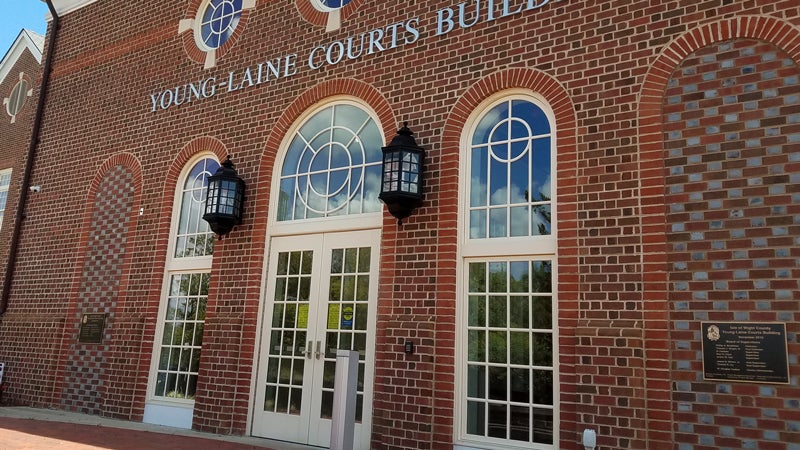Smithfield High students learn to ‘stop the bleed’
Published 5:01 pm Monday, April 17, 2023
Smithfield High School has launched a pilot program that trains students to stop life-threatening bleeding in a mass-casualty event.
By the end of the school day on April 17, roughly 95 of the school’s Junior ROTC cadets were certified in “Stop The Bleed,” a nationwide public-private collaboration of nonprofits and government agencies to teach bystanders what to do in an active-shooter event until help arrives.
According to Stop The Bleed’s website, uncontrolled bleeding accounts for 40% of all trauma-related deaths worldwide. It takes three to five minutes for someone to bleed out, though the average response time for first responders to arrive ranges from seven to 10 minutes.
The pilot program is the brainchild of Junior ROTC cadets Ethan Swartz and Kadence Distefano, who’ve been working since August to bring Stop The Bleed to Smithfield High. The two applied for and received a $1,000 grant from the Isle of Wight County Education Foundation for two training kits, and another grant from the Smithfield Lions Club for 25 bleeding control kits.
Swartz said he began noticing that on days he and his fellow Junior ROTC cadets would wear their dress uniforms, there were at least two in each of his classes, and decided the Junior ROTC program would be an ideal method of ensuring at least one student in every classroom had Stop The Bleed training.
Swartz, who believes the Junior ROTC Stop The Bleed program to be the first of its kind in the state, said he began looking into first-responder training following the Uvalde, Texas, mass shooting at Robb Elementary last May, when a gunman killed 19 students and two teachers as police waited over an hour to enter the school.
When a 6-year-old boy shot his teacher at Recheck Elementary in nearby Newport News earlier this year, Swartz became even more determined. The school shootings making the news were “getting closer and closer” to home, Swartz said.
Swartz and Distefano briefed Isle of Wight County’s School Board on their proposal in January. School Board members Mark Wooster and Michael Cunningham were on site at Smithfield High at the April 17 rollout serving as certified instructors for the program.
Also on site to celebrate the rollout were Virginia Deputy Secretary of Public Safety Maggie Cleary, representing Gov. Glenn Youngkin’s administration, and Del. Emily Brewer, R-Isle of Wight.
“He’s done an incredible job,” Brewer said of Swartz.
Ethan’s mother, Heidi Swartz, said her son had spoken to Youngkin and Brewer in October during campaign events for U.S. Rep. Jen Kiggans, R-Va., about the possibility of bringing Stop The Bleed to every high school in the state through legislation. Sixteen-year-old Swartz apparently made an impression on Youngkin.
“Youngkin actually called him and spoke to him on the phone about it and then wrote back to him in a letter,” Heidi Swartz said.
Swartz, a junior, is already planning for how to continue the program once he graduates next year. Under his plan, Distefano will eventually take over leading the training at the student level, and then train one or two underclassmen once she graduates.
Ethan’s goal is to eventually promulgate the program down to the middle and elementary school level countywide. He hopes one day that Stop The Bleed will be implemented at every school in the state and nation.
Stop The Bleed started as a grassroots movement in the wake of the 2012 mass shooting at Sandy Hook Elementary in Newtown, Connecticut, Ethan told the School Board in January.
According to the Gun Violence Archive, a nonprofit research organization that tracks gun violence nationwide, there have been 164 mass shootings from Jan. 1 through April 16, or roughly 1.5 per day. The figure includes any shooting where four or more people, not counting the shooter, are injured or killed.
According to Education Week, a K-12-focused news organization, there have been 14 school shootings this year a total of 158 since 2018.
Editor’s note: This story is updated to correct the spelling of Richard Linyear’s name, and add that Swartz and Distefano received grant funding for the Stop The Bleed program.












